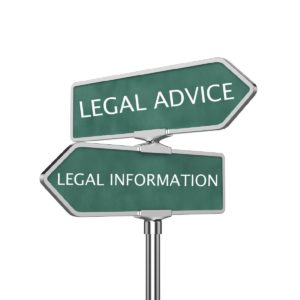Lawyer advertising cannot be false, deceptive or misleading. Most jurisdictions consider deceptive or misleading, communications that compare an attorney’s services with other attorneys’ services unless the comparison can be factually substantiated. (see, e.g., Georgia Rule 7.1(a)(3)).
In light of that general rule, can lawyers publicize their Super Lawyers or other lawyer rating? If so, is there a right way and a wrong way of doing it?
As with everything else in the law, it depends. It depends on how the rating is derived and it depends on the jurisdiction. Some jurisdictions are very particular about what lawyers can or must say in connection with such ratings (so always check your ethics rules). A few examples follow:
New Jersey allows lawyers to refer to various ratings and accolades, like “Super Lawyers,” only when the basis for the comparison is “substantiated, bona fide, and verifiable” and the conferring organization has made “adequate and individualized inquiry into the professional fitness of the lawyer.”
Assuming an award, honor, or accolade meets the preliminary test above, lawyers must include additional information when referring to it in their advertising, “whether that advertising be a website, law firm letterhead, lawyer email signature block, or other form of communication.”
Lawyers must:
- “provide a description of the standard or methodology on which the award, honor, or accolade is based, either in the advertising itself or by reference to a convenient, publicly available source”
- include the name of the comparing organization that issued the award
- include the following disclaimer in a readily discernible manner: ‘No aspect of this advertisement has been approved by the Supreme Court of New Jersey.” Rule 7.1
- present this additional, accompanying language in proximity to the reference to the award, honor, or accolade
- “when the name of an award, honor, or accolade contains a superlative, such as “super,” “best,” “superior,” “leading,” “top-rated,” or the like, the advertising must state only that the lawyer was included in the list with that name, and not suggest that the lawyer has that attribute” (i.e., “is on the list” instead of “is a Super Lawyer”)
“Jane Doe was selected to the 2016 Super Lawyers list. The Super Lawyers list is issued by Thomson Reuters. A description of the selection methodology can be found at www.superlawvers.com/about/selectionprocessdetail.html. No aspect of this advertisement has been approved by the Supreme Court of New Jersey.”
Alaska allows lawyers and law firms to refer to listings in Super Lawyers, Best Lawyers, or another commercial professional ranking, but requires a specific format be used when including a professional ranking in a lawyer’s advertising materials.
Lawyer’s must state: “Attorney’s Name was selected for inclusion in Publication Date.” So, for example,
“Jane Doe was selected for inclusion in Alaska Super Lawyers 2008.”
If the ranking is limited to a specific area of practice, then that information must be included as well: “Attorney’s name was selected for inclusion in Publication Date in the area of field of practice.” For example,
“John Doe was selected for inclusion in Best Lawyers in America 2008 in the area of family law.”
The Philadelphia Bar Association has opined that a lawyer advertisement may that a lawyer has been designated a “Super Lawyer,” but “it may only do so when the advertisement contains sufficiently detailed information about that process and criteria for the reader to whom the advertisement is directed, to determine the manner and context within which the designation was made.”







